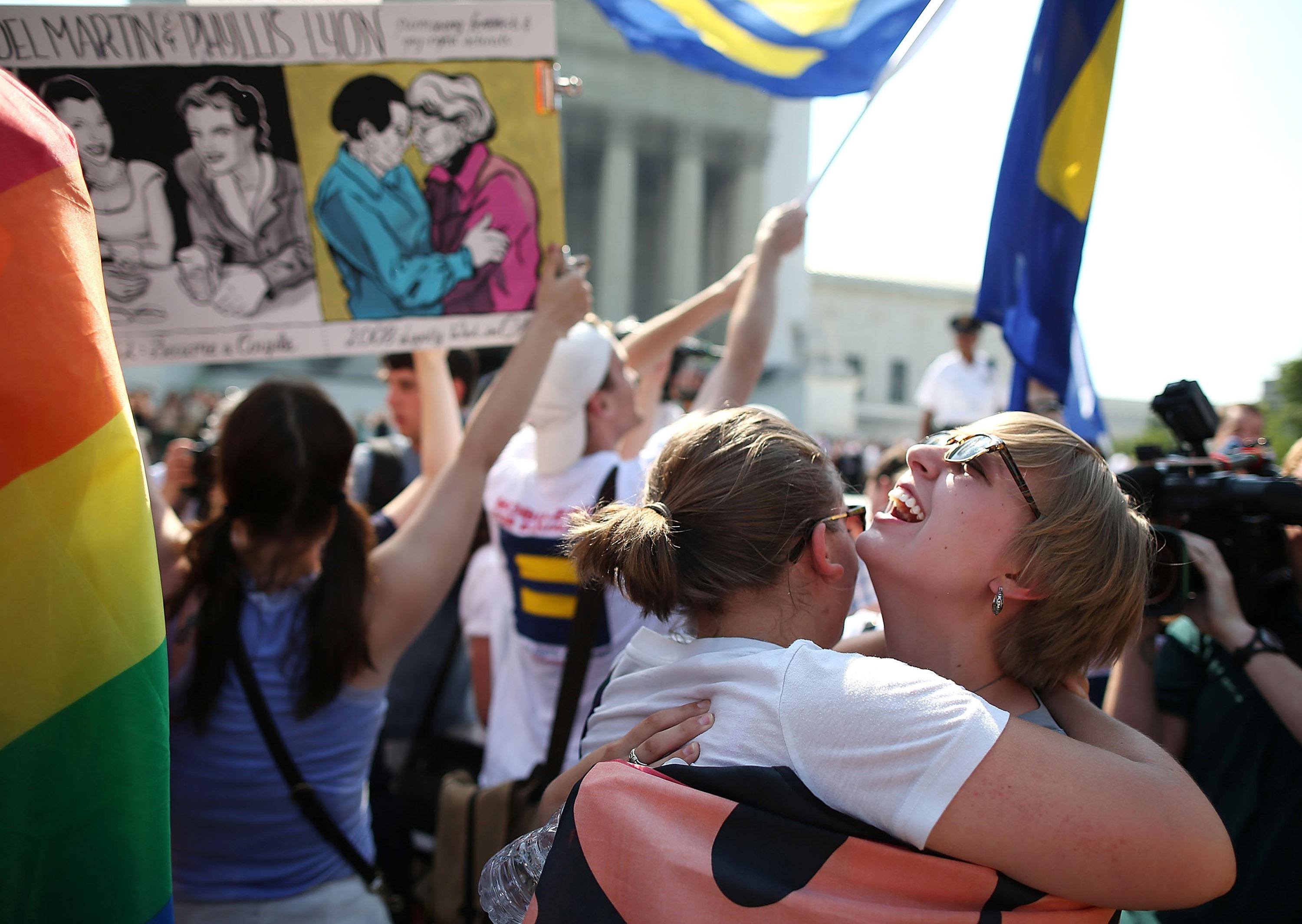By general agreement, the strangest read in the United States v. Windsor decision—the one that neuters the Defense of Marriage Act—comes at the start of Antonin Scalia’s dissent.
We have no power to decide this case. And even if we did, we have no power under the Constitution to invalidate this democratically adopted legislation. The Court’s errors on both points spring forth from the same diseased root: an exalted conception of the role of this institution in America.
This comes literally 24 hours after the court really did invalidate legislation, nixing Section 4 of the Voting Rights Act. That law had been passed again in 2006; DOMA had been passed in 1996. No one who’d voted for the VRA had come to renounce his/her vote, but scores of representatives had apologized for DOMA. Scalia’s not making sense, unless you read this as a cry for help from someone watching his colleagues validate social mores he deeply disagrees with. That’s all over Anthony Kennedy’s decision:
By creating two contradictory marriage regimes within the same State, DOMA forces same-sex couples to live as married for the purpose of state law but unmarried for the purpose of federal law, thus diminishing the stability and predictability of basic personal relations the State has found it proper to acknowledge and protect. By this dynamic DOMA undermines both the public and private significance of state sanctioned same-sex marriages; for it tells those couples and all the world, that their otherwise valid marriages are unworthy of federal recognition. This places same-sex couples in an unstable position of being in a second-tier marriage. The differentiation demeans the couple, whose moral and sexual choices the Constitution protects, see Lawrence, 539 U. S. 558, and whose relationship the State has sought to dignify. And it humiliates tens of thousands of children now being raised by same-sex couples.
Lots of implications there—that “same-sex couples” deserve respect, that they should be able to raise children, that they’ve been discriminated against for no logical reason. (Also, it’s been obvious for a while, and worried about by conservatives, that Lawrence was going to open the door to more legalization.) The threat of Pat Leahy’s LGBT reciprocity amendment to immigration reform was already fading, but this ends it—reciprocity is no longer a question.
So what happens politically? Republicans haven’t rushed to the microphones yet, but the House GOP lost—they paid to defend DOMA, and it was struck down. It’s within their power to try to defund the removal, and we’ll suss out soon whether there are enough House Republicans passionate about the issue to do this.
But the court’s decision not to write a new definition of marriage (to just overturn Prop 8) means that marriage rights return to the states, to be voted on in referenda, state legislatures, and in courtrooms. The polling in favor of gay marriage has stalled somewhat after tipping into positive territory nationally. But we’re going to see a series of campaigns and scattered lawsuits from couples who can now say they deserve marriage benefits, and there’s no act of Congress stopping them.
Read more from Slate’s coverage of gay marriage cases at the Supreme Court.
